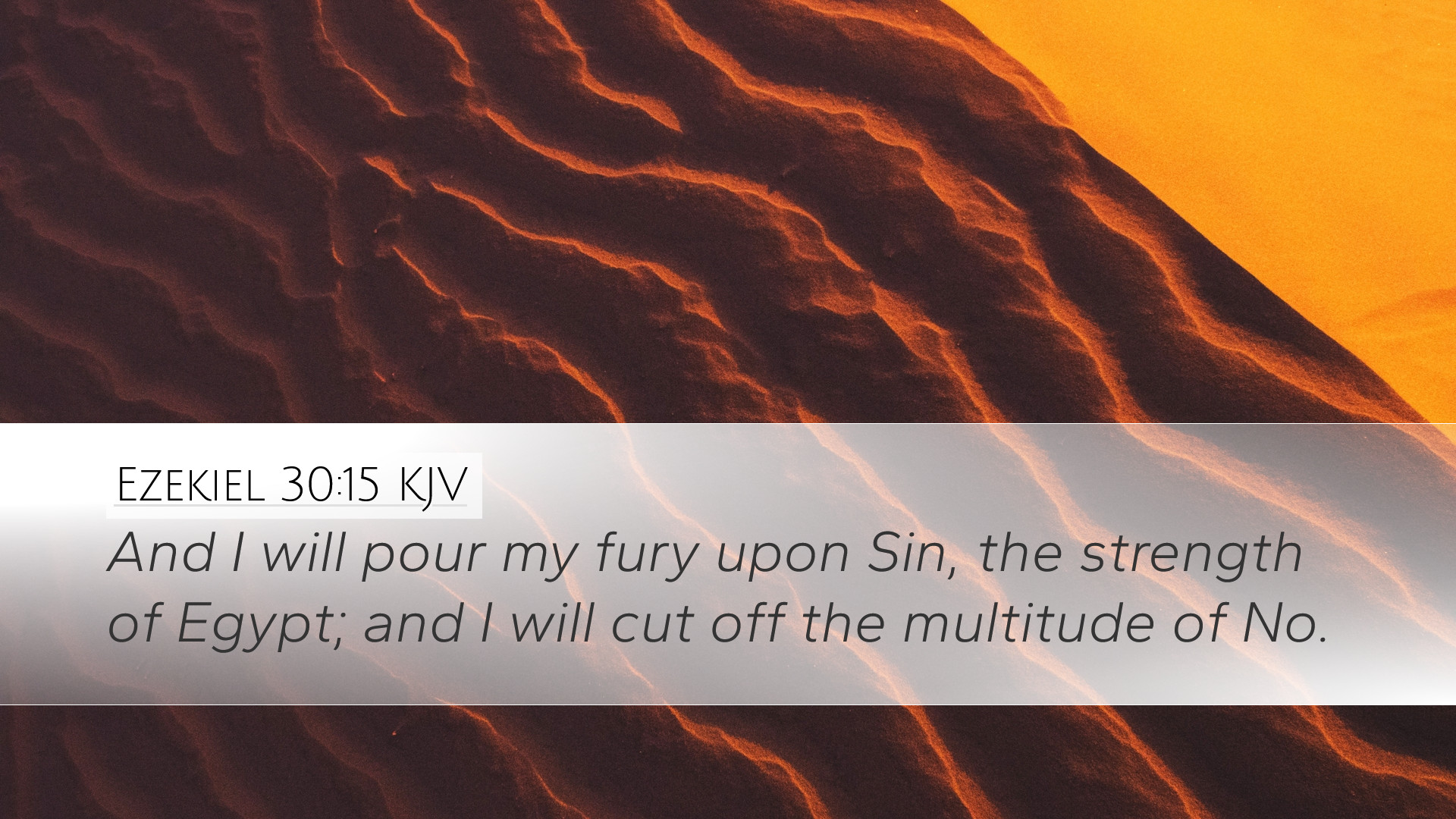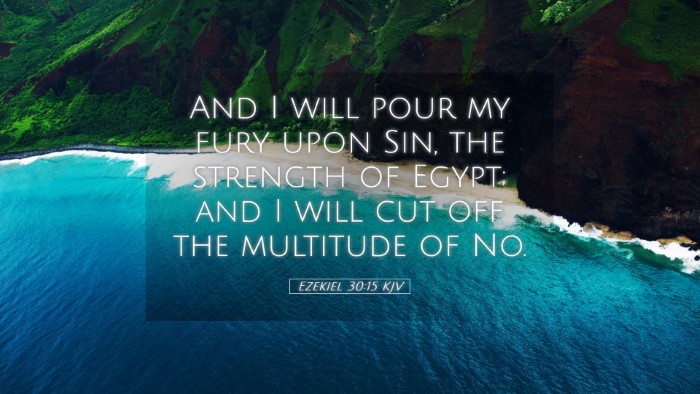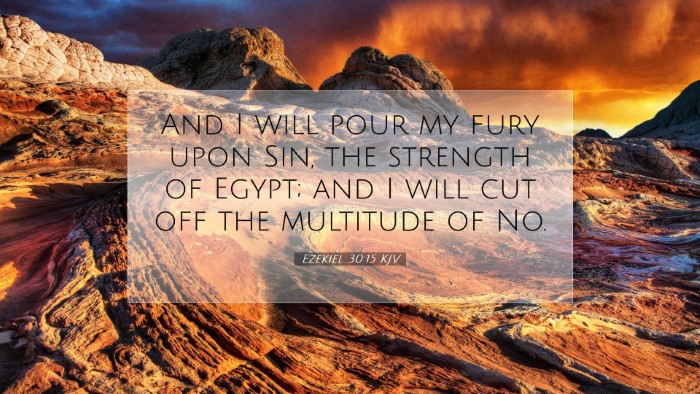Commentary on Ezekiel 30:15
Ezekiel 30:15: "And I will pour out my fury upon Sin, the strength of Egypt; and I will cut off the multitude of No."
Introduction
The prophetic message in Ezekiel 30:15 serves as an integral part of the broader theme of God's judgment upon nations, particularly Egypt. This verse highlights the divine intention to manifest His fury against Sin, a key city often associated with the worship of the Egyptian deity and, more generally, idolatries throughout the land. In examining the commentaries of Matthew Henry, Albert Barnes, and Adam Clarke, one can glean a deeper understanding of the spiritual implications and historical context surrounding this passage.
Historical Context
Ezekiel's prophecies occurred during a tumultuous time in Israel's history, specifically during their Babylonian exile. It is vital to note that the city of Sin (the modern-day city of Pelusium) was not only significant for its strategic location but also as a center of worship for the Egyptian gods, particularly Set, the god of the storm and chaos. The fury directed towards Sin represents God's judgment on both the city and its idolatry.
Divine Fury and Judgment
1. The Nature of God's Fury
Henry emphasizes that God's fury is not arbitrary; it is a righteous response to the persistent sins of a people. The word "fury" in the Hebrew indicates a burning wrath, reflecting God's passionate aversion to sin. God's judgment upon Sin signifies His displeasure with idolatry, emphasizing that nations that turn away from Him to worship false gods will inevitably face His wrath.
2. The Multifaceted Target of Judgment
Barnes sheds light on the phrase "the strength of Egypt." Sin functioned as a symbolic representation of Egypt's military and religious fortitude. God’s judgment is aimed not just at a geographical location but at the very foundation of Egyptian strength—its false beliefs that provided a false sense of security apart from the true God.
Lifeworld Applications
Lessons on Idolatry: Clarke draws attention to the broader implication of such judgments. Modern readers are invited to reflect on their own lives and the potential idols that may exist today. Just as Egypt was judged for its devotion to false gods, believers are called to examine their priorities and ensure that they do not create idols in their hearts.
Faith in Trials: The verse also encourages those facing difficult circumstances to trust in God’s sovereignty. God's judgments serve both as a warning and a promise—while His anger towards sin is evident, His faithfulness to those who seek Him remains inexhaustible.
Spiritual Insights
The striking line "I will cut off the multitude of No" (referring to Thebes) reveals God’s intent to dismantle the entire religious infrastructure that stood opposed to Him. The city No symbolizes the height of pride and self-sufficiency, showcasing Egyptian hope in their own strength. In light of this, God's cutting off serves as a proclamation that no nation can withstand the will of God.
Henry further posits that God's actions demonstrate His absolute authority over nations. This principle remains relevant today, as God continues to assert His power over kingdoms, both seen and unseen. The global church is urged to recognize and respond to the majesty and sovereignty of God in these changing times.
Conclusion
In Ezekiel 30:15, we see a powerful testament to the serious consequences of idolatry and the beckoning call for nations and individuals to return to the one true God. This prophetic warning, while historically rooted, echoes profoundly across time, emphasizing that God’s displeasure with sin knows no bounds. Understanding the divine context of this passage compels the church to be vigilant in its worship, ensuring the exaltation of Christ above all else.


